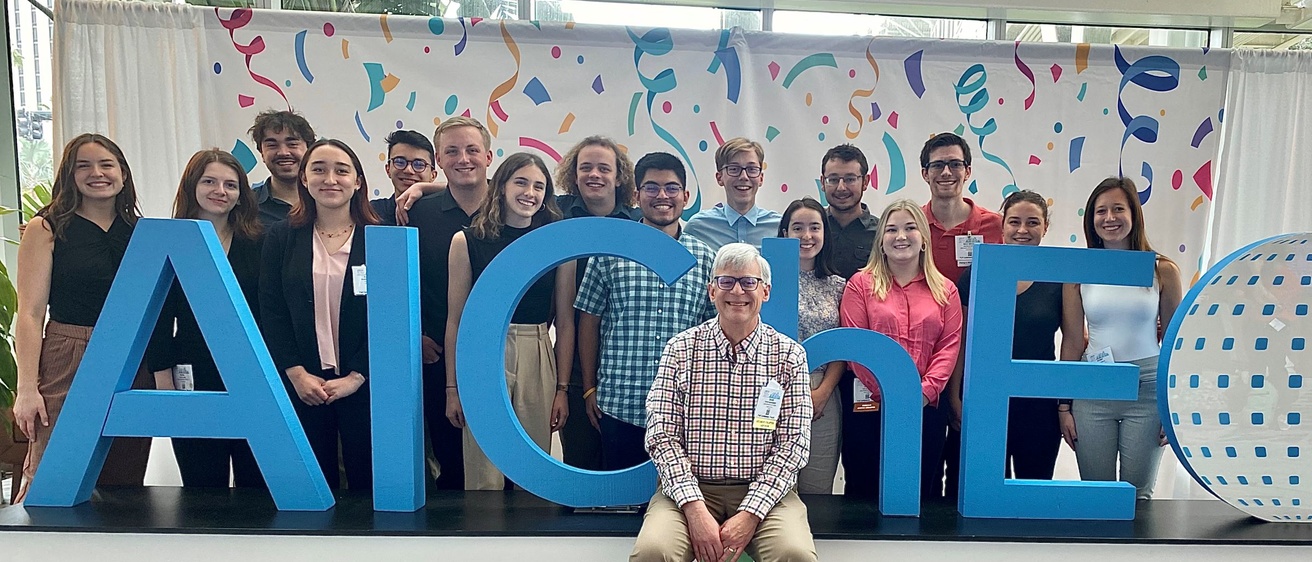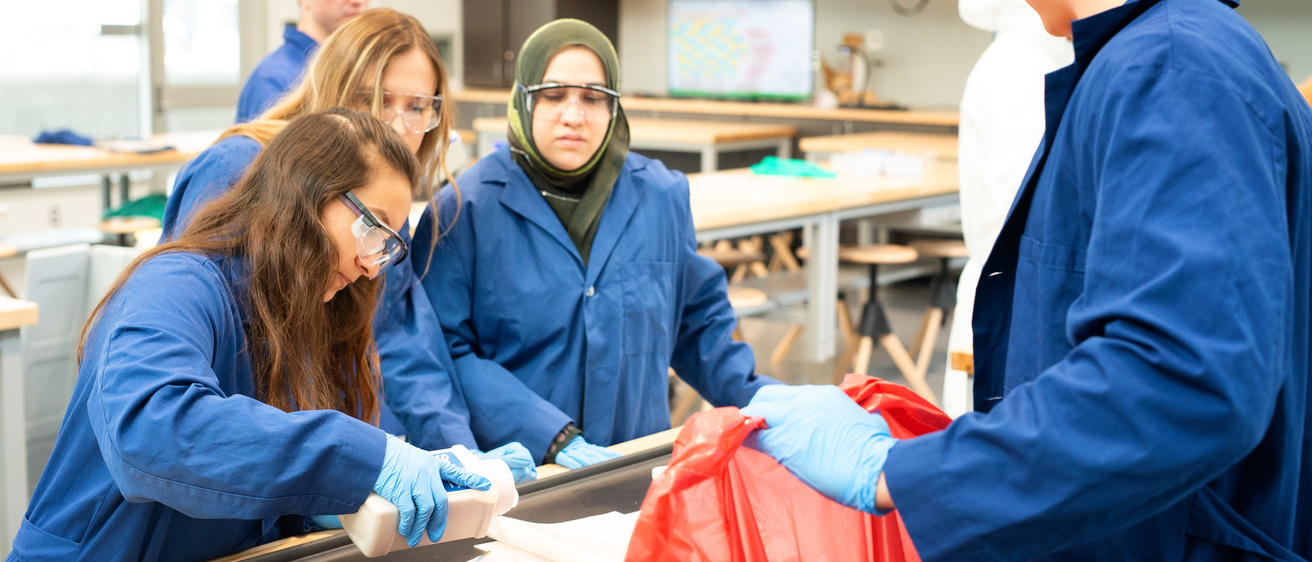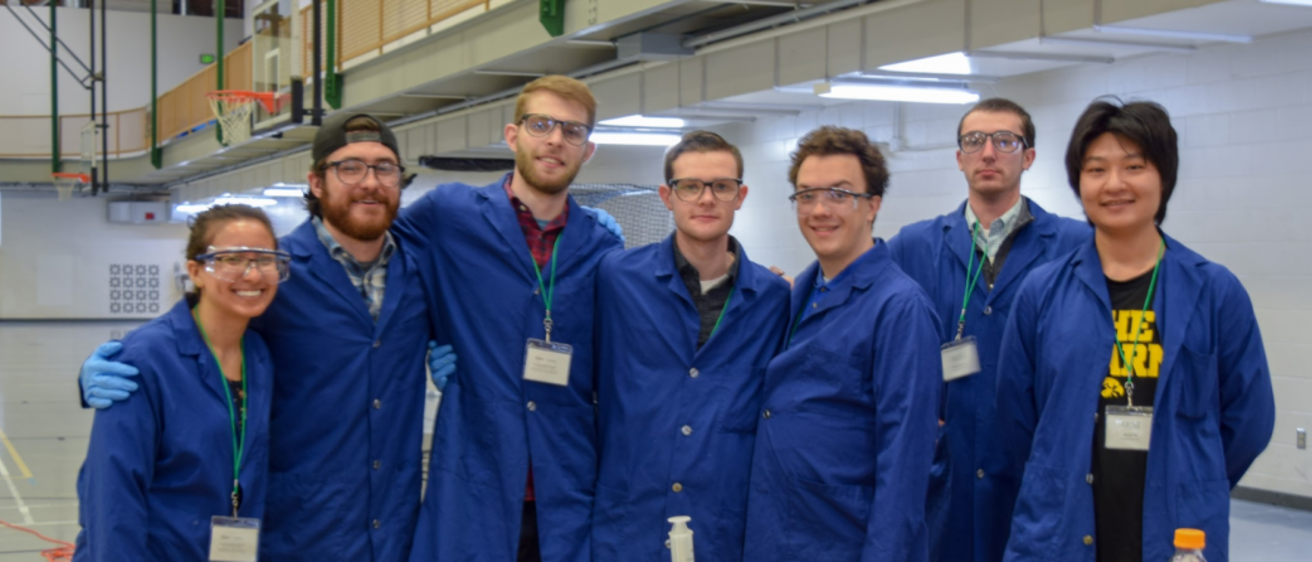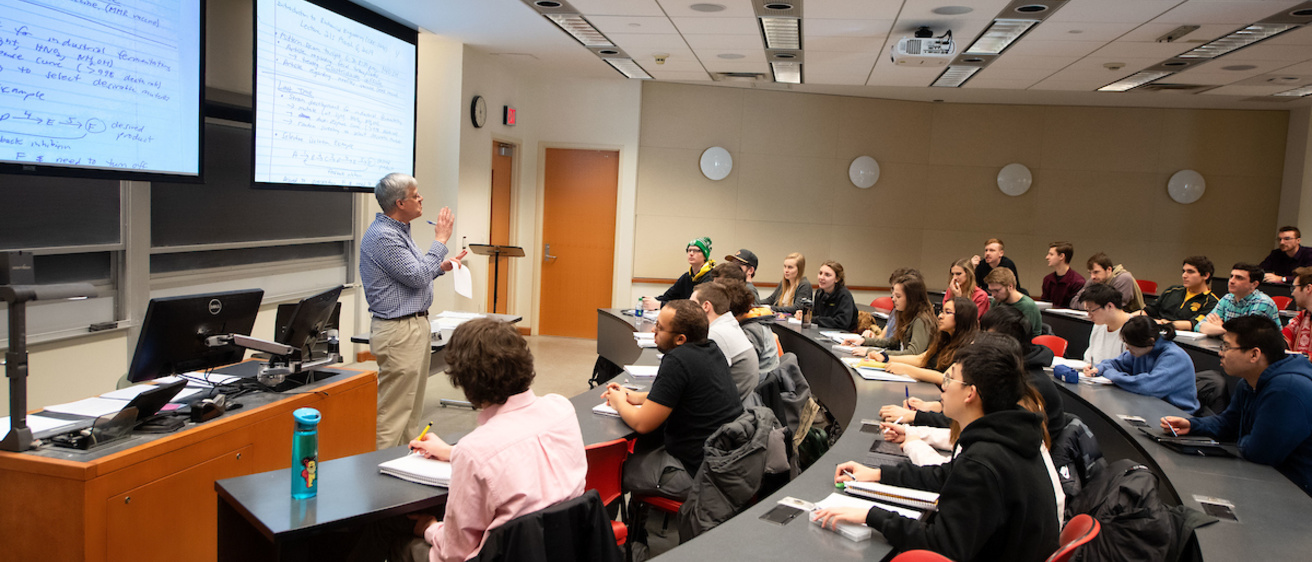Main navigation
Welcome to Chemical and Biochemical Engineering at the University of Iowa.
Our mission is to serve Iowa, the nation, and the world by graduating talented and well-rounded chemical and biochemical engineers possessing the tools and capabilities to become technology and business leaders, and through excellence in research and scholarship that advances sustainable technologies.
Our small size gives us the ability to work individually with each student, including internal and external transfer students, to come up with a personalized plan of study.
$74,500
2023 AIChE Salary Survey
$150,000
2023 AIChE Salary Survey
Graduation Requirements
The requirements for receiving a B.S.E. degree in Chemical Engineering are the following:
- Successfully complete the required courses and an accepted Focus Area
- Maintain a GPA of 2.0
- Complete an accepted enriching activity
- Complete 128 semester hours of course work (129 semester hours for the Pre-medicine Focus Area)

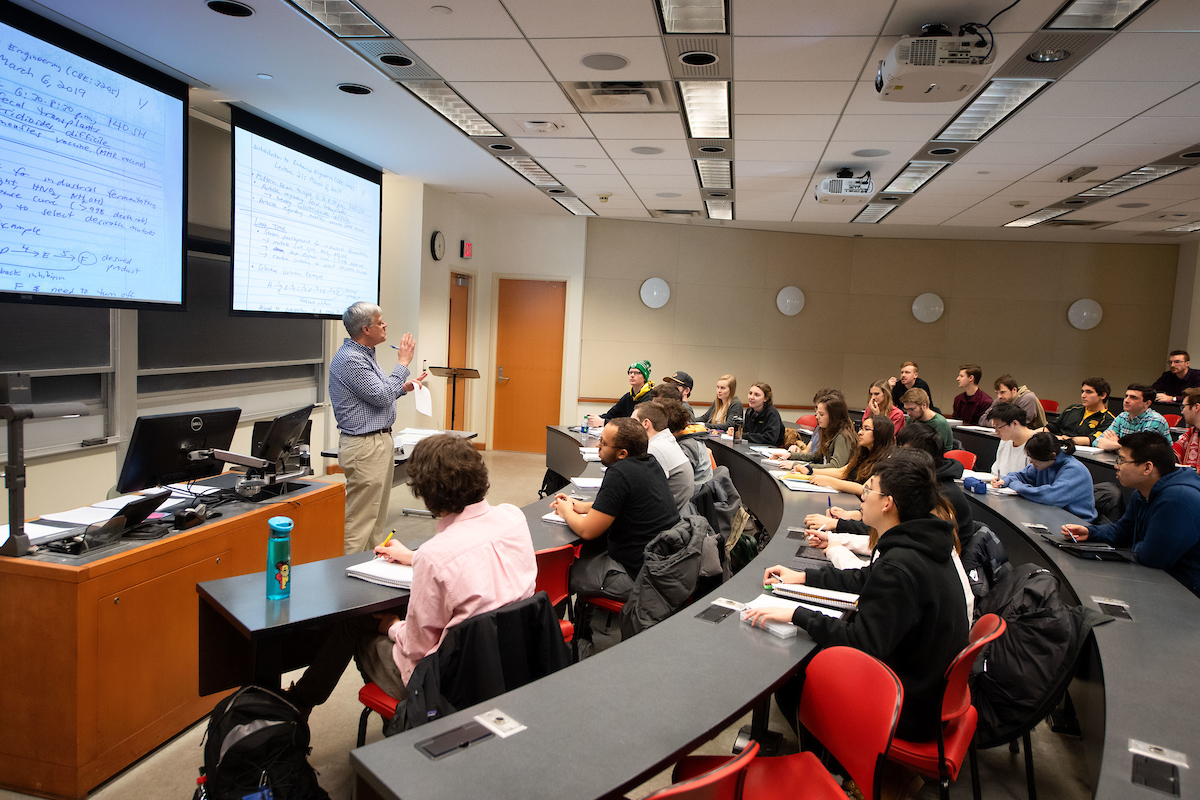
Curriculum
The undergraduate program requires 128 semester hours of course work for graduation (129 semester hours for the Pre-med Focus Area). These courses are in the areas of mathematics, chemistry, general engineering, chemical engineering, and the general education component (GEC). Two semesters of calculus and one semester each of differential equations, matrix algebra, and probability and statistics satisfy the mathematics requirement. General and organic chemistry courses are required, with a lecture and lab portion for each area. In addition, an advanced chemical science sequence, including lecture and lab courses, consistent with the student's Focus Area, is also required.
The general engineering courses include statics, electrical circuits, thermodynamics, materials science, and computational methods. The chemical engineering courses are taken during the sophomore, junior and senior years. Chemical kinetics, thermodynamics, momentum transport, heat and mass transfer, economics, process control, design, and safety are covered in these classes. Focus Areas give the student an opportunity to explore an area of personal interest.
Focus Areas
The inclusion of Focus Areas (FAs) in the Chemical Engineering curriculum provides you with the opportunity to gain depth of knowledge in your chosen career path in addition to the strong fundamental grounding in the scientific, engineering, and chemical engineering principles provided by the common curriculum.


Enriching Activities
Chemical engineers in the workplace inevitably work in multidisciplinary teams, and are frequently working on projects that impact society both locally and globally. Therefore, our program will provide enriching activities to enable each student to develop effective multidisciplinary team skills and to develop an understanding of the impact of chemical engineering practice on both the micro and macro scales. All Chemical Engineering students will complete at least one of the following enriching activities as a requirement to receive a BSE degree:
- Three semester hour equivalent of an approved research experience
- Cooperative education experience
- Internship experience
- Study abroad
- Entrepreneurial program (i.e., receive the corresponding certificate)
- Other approved multidisciplinary experience
